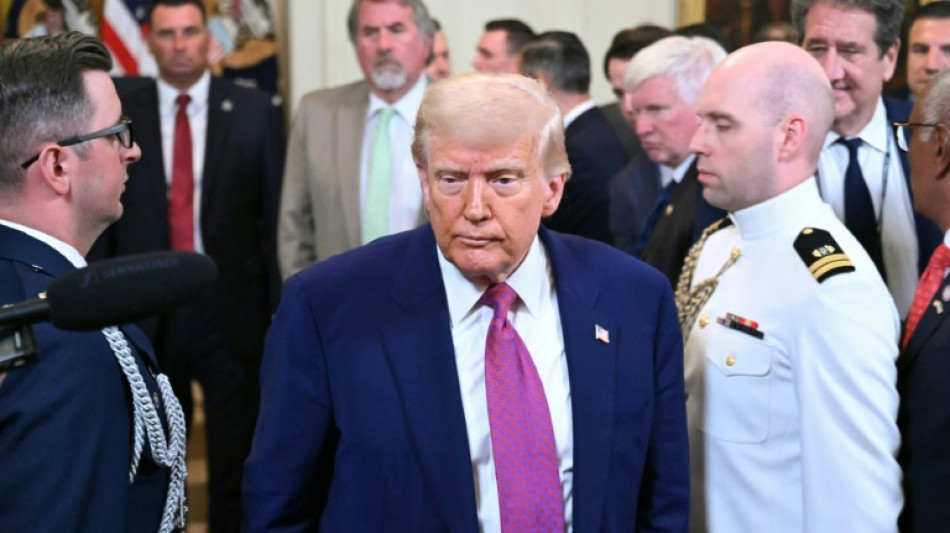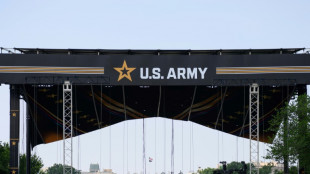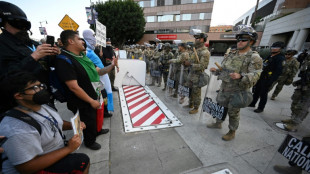

Israel attack on Iran tests Trump promise not to be dragged into war
For President Donald Trump, few goals on the world stage have been more explicit -- he will not drag the United States into another "forever war."
Yet Israel's massive strikes on Iran will test that promise as never before, potentially setting up a showdown with his base as Trump decides how much support the United States will offer.
Trump had publicly called for Israel not to strike as he sought a negotiated solution, and his roving envoy Steve Witkoff had been scheduled to meet Iranian officials for the sixth time Sunday.
Trump, who hours earlier warned that a strike would cause "massive conflict," afterward praised Israeli strikes as "excellent" and boasted that Israel had "the best and most lethal military equipment anywhere in the world" thanks to the United States -- and was planning more strikes unless Iran agrees on a deal.
Secretary of State Marco Rubio, however, has insisted that the United States was not involved in the strikes and warned Iran not to retaliate against the thousands of US troops stationed in nearby Arab countries.
"The US has calculated that it can help Israel and that the Iranians will obviously be aware of this, but at the end of the day, at least at the public level, the US stays out," said Alex Vatanka, founding director of the Iran program at the Middle East Institute in Washington.
The hope is that "the Iranians will do a quick cost/benefit analysis and decide it is not worth the fight," Vatanka said.
He said Iranian leaders are for now focused on staying alive, but could decide either to swallow a tough deal -- or to internationalize the conflict further by causing chaos in the oil-rich Gulf, potentially sending oil prices soaring and pressuring Trump.
- 'America First' impulse -
Most key lawmakers of Trump's Republican Party quickly rallied behind Israel, whose prime minister, Benjamin Netanyahu, is a hero for many on the US right.
But Trump's populist "America First" base has been skeptical. Tucker Carlson, the prominent media commentator who counseled Trump against a US strike on Iran in the first term, has called fears of Tehran building a nuclear bomb overblown, saying neither Iran nor Ukraine warrants US military resources.
Trump has brought outspoken non-interventionists into his administration.
In an unusually political video this week, Trump's director of national intelligence, Tulsi Gabbard, warned after a visit to Hiroshima that "warmongers" were putting the world at risk of nuclear catastrophe.
In a speech in Riyadh last month, Trump denounced decades of US interventionism in the Middle East and said, "My greatest hope is to be a peacemaker and to be a unifier. I don't like war."
- How far to back Israel? -
Daniel Shapiro, who served as US ambassador to Israel under former president Barack Obama, said he was certain the United States would support Israel in defense against Iranian retaliation.
But Trump will face a harder decision on "whether to use the United States' unique capabilities to destroy Tehran's underground nuclear facilities and prevent an Iranian nuclear weapon," said Shapiro, now at the Atlantic Council.
"The decision will split his advisers and political base, amid accusations, and perhaps his own misgivings, that Netanyahu is attempting to drag him into war."
Lawmakers of the rival Democratic Party widely revile Netanyahu, including over Israel's bloody offensive in Gaza.
"This attack by Netanyahu is pure sabotage," said Democratic Representative Joaquin Castro.
"What does 'America First' even mean if Trump allows Netanyahu to drag the country into a war Americans don't want?" he wrote on social media.
Netanyahu has long insisted that Iran's ruling clerics -- who support Hamas in Gaza -- pose an existential threat to Israel.
The strikes came after Iran defiantly said it would ramp up output of highly enriched uranium, playing hardball ahead of US talks.
Sina Toossi, a senior fellow at the progressive Center for International Policy, said that China -- identified by Trump as the top threat -- could seize the moment, perhaps by moving on Taiwan, as it sees the United States as even more distracted.
"Even without direct involvement, Washington now faces the prospect of indefinite resupply, intelligence and diplomatic backing for Israel, just as the war in Ukraine intensifies and global crises multiply," Toossi said.
"Wars are easy to ignite, but once unleashed, they tend to spiral beyond control, and rarely end on the terms of those who start them."
N.Coleman--VC






